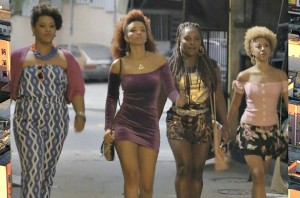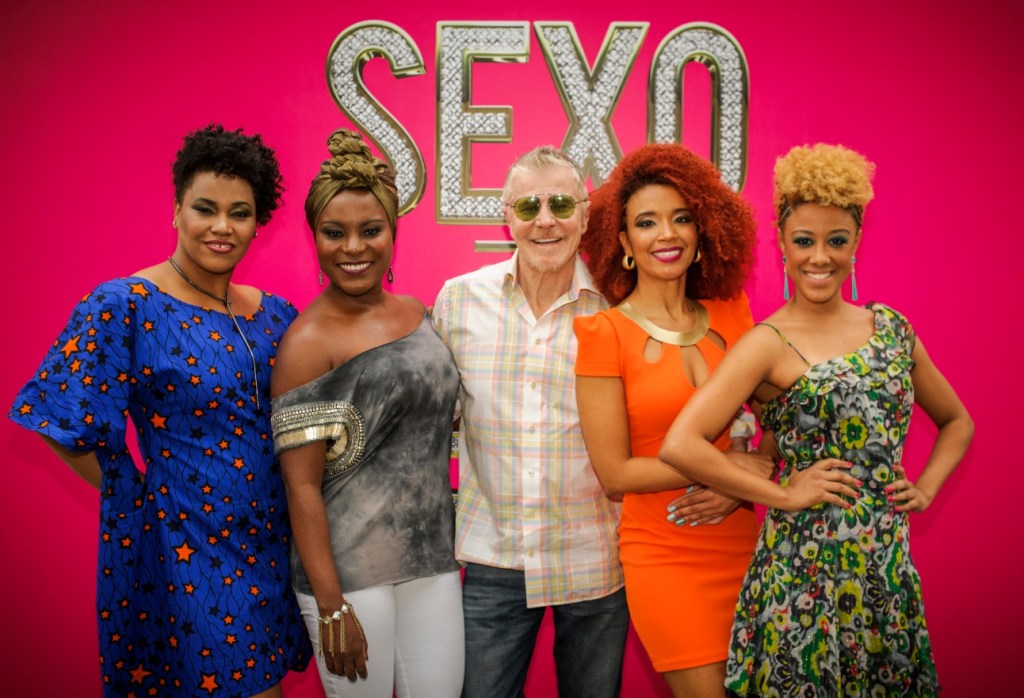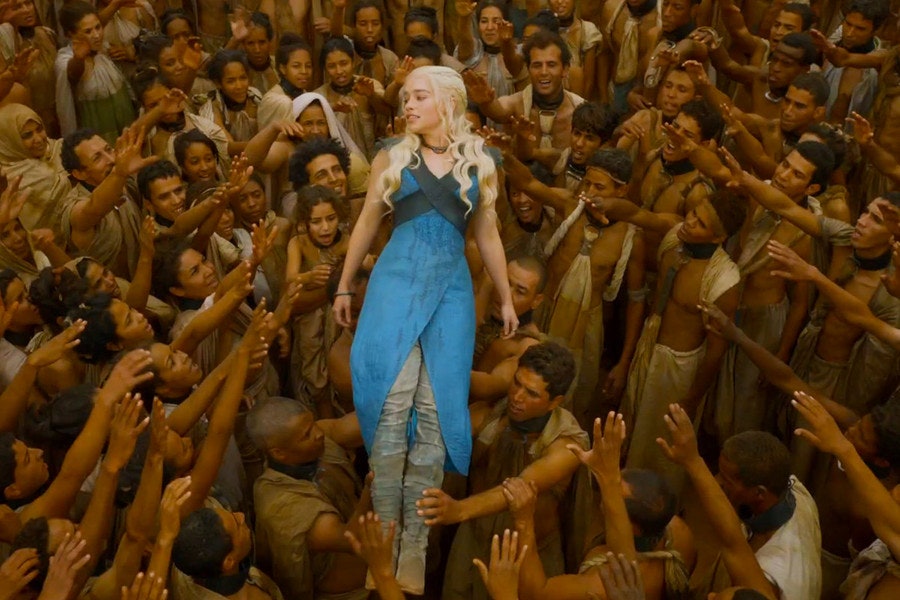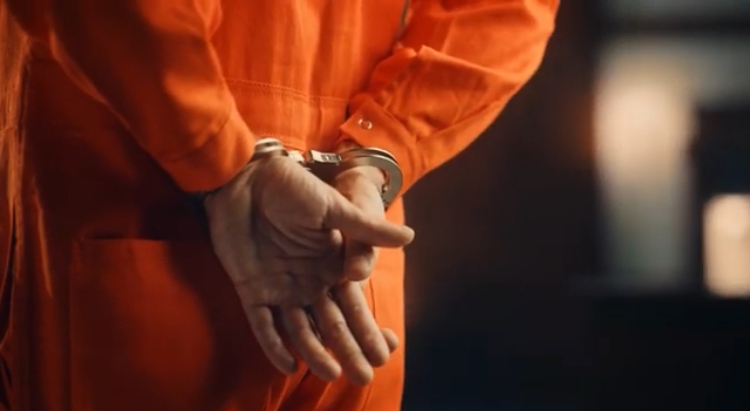Editor’s note 20/10/14: ‘Sexo e as Negas’ the term ‘negas’ in Brazilian vernacular can be used as both racially pejorative and as a racialised term of endearment. The original title of this piece ‘Brazil’s new primetime show “Sex and the Niggaz” serves the white gaze’ has been changed to acknowledge its usage and complexities in different contexts.
TV Channel Globo, one of the largest television networks in Brazil, is broadcasting a series called “Sexo e as Negas”. The series is an adaptation of Sex and the City, but this time with four Black actresses. The series has been written by the famous White actor, writer and producer Miguel Fallabella.
The very title of the series is itself hugely problematic, not only because race is the primary signifier of the women, but also because the terms are full of racist and gendered connotations, such as the vernacular Brazilian expression “I’m not your niggaz “. In racist discourses, Black women are those who work for sex, while the white woman is the woman who is worthy of romantic love, kindness and respect. These same dualities are repeated in “Sexo e as Negas”, where the main character is a white woman who seeks love, while the black women live only for sex, which reminds us of another Brazilian expression which also has its roots in slavery and has remained practically unchanged – “White women are for marriage, mulatas are for fucking and black women are for work”.
In the series the narrator is a white person. She is a voyeur; someone who is looking through a keyhole at the sexuality and the bodies of black women who can be raped and manipulated by structural whiteness, not only literally but also through cultural representation. Our existence is fetishised. We are on display for the white gaze. Moreover, even when the characters are placed in situations of explicit racism and sexism, they do not react. The women remain silent or dissolve into strange giggles. These women do not represent us.
The black feminist critique has gone straight to the heart of the matter, denouncing stereotypes and the symbolic violence of these representations where black women are both hypersexualized and passive in the face of racism and sexism. At Blogueiras Negras (or Black Bloggers, a blog written only by black women), we have an alternative series on our youtube channel where we have been able to express our anger. We have also started a National Boycott Movement of the series, including exposing the companies that have sponsored it, namely TIM , VIVO , Avon , Pedigree, Sadia , Itaú , Dermodex , AmBev.

The author of the series says he is an ally; someone who has struggled to discuss issues of blackness. The same author released a statement on his facebook trying to silence us while mocking our criticism, comparing himself to Spike Lee and calling black women who did not accept his work “bush captains” – a name for slave hunters in Brazil. His response included, “Oh! niggaz … give me a break”. On another occasion, Fallabella suggesed that our reaction was down to a sheer lack of intelligence.
The following text is an open letter signed by individuals and collectives of black women. It reflects the views of Bloggers Negras both to the series and to Fallabella’s subsequent responses to our critique.
Open letter to Mr Miguel Falabella ‘Oh! White Man! Give me a break!’
You ask me if I am going to call you a racist? You tell me!
Racism is not about polemics, much less about rancor or a lack of humor. More than anyone else, as someone who believes himself to be a defender of race equality and so is an ally in the fight against racism, you should know this. You should also know that to defend yourself by enumerating your black friends as evidence of your anti-racist credentials is to live in a warped and simplified world of privilege. It is a world in which the voices of black women are reduced to minor controversies.
Oh! White man, you give me a break! You say it “hurts” you to see the struggles of your black colleagues, the slights and their continued undervaluing and invisibility. In the case of black women, it is worse. You certainly have an awareness of the terrible experience of Neuza Borges, one of the greatest actresses we have. Yet, as a black woman, Neuza Borges, cannot find a place in Brazilian television. She lives a hand-to-mouth existence because her next soap opera could still be a long way off and will depend on the “good will” of others, not on her talent.
You ask me if the problem is sex or “as nega”, wanting to disbelieve our fundamental critique of the media. We heard the news that even GLOBO’s enthusiasm for your project has waned. You argue that this is simply about prosody. You say that the title of the series came from a black woman. So, I ask myself did the same woman receive the credits and financial rewards for her collaboration? Or is she someone who doesn’t deserve a name, not even a surname?
Not a problem white man, I will blacken everything again.
As nega, I come back to explain, it is not a question of prosody. Such racialised terms transform the body of the black woman, offering her up to be consumed by a racist gaze. As “your nega” we are put in the position of secondhand goods. The expression is embedded not only in the language of slavery, but also of sexism, so that we feel these terms in the flesh. This is a double violence that reduces and commodifies women according to their skin color and sex, determining our value and place is society.
 Still with the name of this series, I fear that many people do not know the difference between one racist adjective and a common adjective. At Bahia, “nego and nega” have different connotations from those in Recife, for example. And depending on the use of the phrase, tone and of who is using it; who sends the message and who receives it, you can offend or you can compliment. However, in a heinous context of 350 years of slavery, “I am not your nega” does not break free from its racist connotations. And if someone perpetuates a racist adjective, what name should we give this act? Oh! White man, you tell me!
Still with the name of this series, I fear that many people do not know the difference between one racist adjective and a common adjective. At Bahia, “nego and nega” have different connotations from those in Recife, for example. And depending on the use of the phrase, tone and of who is using it; who sends the message and who receives it, you can offend or you can compliment. However, in a heinous context of 350 years of slavery, “I am not your nega” does not break free from its racist connotations. And if someone perpetuates a racist adjective, what name should we give this act? Oh! White man, you tell me!
Your work, with a view to making financial profit, does little to create the dignified visibility of black women. It does the opposite. As is common in literature and dramaturgy made by white people about black people, we are treated as exotic study cases; people to be manipulated and observed. Oh teach us professor Ligia Fonseca Ferreira! Your work amounts to “negrismo” – racist parody. It is not “negritude”, derived from the complexities of black cultures, the distinction made by the writer and journalist Oswaldo de Carvalho.
Yes, I am saying that we should be able to speak for ourselves. You can call that reverse racism if you wish. For us, this is about a counter-hegemonic visibility, with the power to transform the ways we are represented in the next soap opera, and the next mini-series. Without this transformation, nothing will change. The black woman will be nothing more than a stereotype to entertain.
When we first heard the news about the series, it was said that a white woman would be the principal actor. She, who behind a balcony, would observe us like animals in a zoo. She who would speak on our behalf. Our history, suffering and capacity to speak for ourselves were minor details. The narrators of our trauma and suffering, in this case a man, is someone absent from this suffering. It is not silliness, not even conservatism, not even the forces of politically correctness, as some will suggest. It is about critical care for our history and existence.
You argue that “a show that reflects a little of the hard life of these people, beyond employing and bring protagonism to more black actors” is desirable. And in reality, it would have been so. Since it could have been written, produced and protagonised by black people. In reality even the woman who named the series did not get her due recognition. This detail says a lot about the symbolic violence that this TV-series enacts and represents.
How is it possible to pretend that to dehumanize us is to enhance our visibility? Since when does treating us as the cheapest meat in the market, as Elza Soares sings, mean that you are our ally? Oh! White man, give me a break! Your words only serve to disclose your intentions. We will continue to denounce racism and sexism from those in positions of privilege who distill poison and commit such violences of representation against black women.
This is not about sex. It is about denouncing a perverse system that excludes black women and makes us less human. A system in which black men are the targets of police violence and of hypersexualization: the “man with the big penis” is a result of the brutal animalization of the body of the black man, always ready for sex. Where is the critique of this objectification in Brazilian TV? Well it is not on your TV series, even less so in what you say and how you have responded to us.
We repudiate your words because we were raped and brutalized in slavery and continue to be in the worlds of drama made by white people about us. And this is one of the mechanisms that racism uses to perpetuate itself: reducing the complexity of black women’s lives to a hypersexualisation. You speak about the hot mulata, delicious and spicy. We are more than this. We need to be shown in our full everyday complexities, as women who work, dance, party, and want sex yes, but we are not only this.
We are not here to overlook or deny that we are housekeepers, maids, hairdressers, domestic workers and carers. But in our achievements and our struggles, we are also directors, dancers, lawyers, marketing officers, writers, teachers and doctors. Where are these women in your TV series? Maybe they are living in Cordovil? Perhaps we are not living in the suburbs? I doubt it. We will NOT accept caricatures anymore! And so this critique goes beyond the problematic name of the series.
Oh! White man, give me a break! So you are now comparing yourself to Spike Lee to give credibility to your work? No, there is no comparison. And it is not only because Spike Lee is a black man. It is because we do not see any racial critique in “Sex and as nega” as we see it in “Do the Right Thing”. The ghetto is a landscape, but also a character. The author is not only observing and telling their version of a story: Spike Lee is in the ghetto; through the racialising gaze he is the ghetto.
Please, respect our history and take back your accusations. We are not persecuting the black actors in this series, much less the real women that are represented by your characters. Those who know something of our history know that there exists other versions beyond those in which we were enslaved. Don’t pretend you do not understand who created the bush captains.
To accuse someone of becoming a “bush captain” is something much more complex than terminology. It is to imply that we are our own torturers. This is a fallacy. Retract your words and think about what our boycott and critique means as a critique of a historically racist system in which the right to speak, to tell our own stories has always been restricted. I repeat: this is not a witch hunt. It is about gendered racism.
We oppose your use of terminology and all those who pretend to understand the pain of those who suffer. This world where racism is entertainment to boost audience numbers, naturalizes and entrenches racism. We have had enough of your discourse, of your TV shows that use blackface; that transforms every black woman into a domestic worker or mulata globeleza1 Our bodies are not spaces for your pleasure, fun, profit or enjoyment. We are black women with pens and keyboards, eager and competent writers of our own plots and life trajectories.
Oh! White man, give me a break! Those who try to silence us are racist, yes.
Visit the campaign’s Facebook page and sign the petition
Notes
- Mulata globeleza is a character created by the same TV channel during the carnival
___________________________________________________________
All work published on Media Diversified is the intellectual property of its writers. Please do not reproduce, republish or repost any content from this site without express written permission from Media Diversified. For further information, please see our reposting guidelines.
_________________________________________________
At Blogueiras Negras (or Black Bloggers, a blog written only by black women. Find them on Twitter: @BlogNegras
This piece was translated and edited by Betty Martins and Yasmin Gunaratnam
Related articles
- Campus Racism in Brazil – the case of Stephanie Ribeiro (mediadiversified.org)
- A Conversation with a Kenyan Sex Worker (mediadiversified.org)
- This Week In Whitesplaining (mediadiversified.org)













Leave a reply to Shane Thomas Cancel reply